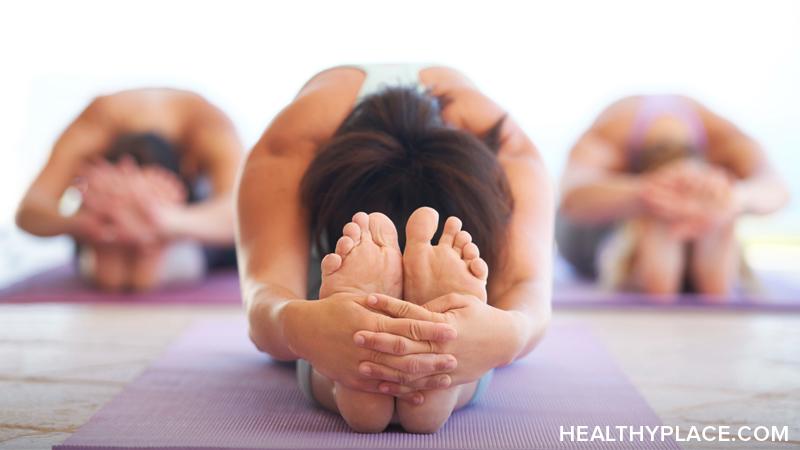Yoga for Anxiety Is Very Helpful

Yoga is a complete mind-body experience that has been shown to reduce anxiety and increase inner calm. Yoga for anxiety is more than a set of stretches; indeed, it’s a philosophy of life and a complete system for transcending anxiety (Bourne, 2010). Using fluid postures and stretches, mindfulness, and meditation, yoga connects us to ourselves. In uniting breath, movement and action, thought, emotion, brain, and body, yoga works wonders in reducing anxiety.
Traditionally, yoga has helped people seek enlightenment and hasn’t always been considered to be a self-help tool for anxiety. Yet yoga is the perfect means for helping anxiety. When people set out to do more than get rid of anxiety, when they seek to transcend it and replace it with meaning and purpose and personal values, yoga is highly appropriate for anxiety.
“[Yoga and enlightenment] mean becoming healthy, happy, and successful, becoming one’s true self, free of the need of external validation” (Imparato, 2016). And of course, as a natural part of this yoga and this enlightenment, we begin to live a life free of anxiety.
Yoga for Anxiety Works
Yes, yoga for anxiety works! Research has provided evidence of yoga’s wellness-enhancing abilities; indeed, yoga has been shown to increase our control over our bodies and minds by allowing us to lower our heart rate and our level of anxiety (Chopra, et al, 2010). Other studies have shown that people have been able to eliminate anxiety medication after several months of regular yoga practice (Balch, 2012). (Note: This is a decision that must be made with a general doctor or a psychiatrist. Abruptly stopping any medication can cause dangerous withdrawal symptoms as well as increased anxiety.)
There is power in the postures of yoga. The postures and movements that have been practiced for millennia foster specific qualities within us that we can tap into to move past anxiety and live a life of mental health and wellbeing.
Yoga offers numerous benefits, among them
- relaxation and inner calm,
- stress reduction,
- enhancement of the mind-body-spirit connection,
- increasing feelings of physical and mental wellness,
- slowing the body systems and metabolism,
- slowing anxious thoughts, and
- healing the dis-ease of anxiety.
How to Use Yoga for Anxiety
Yoga can be done with a trained instructor in a group class setting. If you’re not keen on the idea of group classes in a studio, there are many DVDs available as well as programs online. You can even buy or borrow from the library books that contain illustrated yoga poses and instruction. Anything goes when it comes to practicing yoga for anxiety.
Top lifestyle, wellness, and yoga expert Lauren Imparato (2016) shares what she has found to be successful with yoga for anxiety. She combines poses for breathing to induce calm and balance with energetic, stress-burning, anxiety-relieving, exercise. She ends this practice with yoga poses for relaxation. This encourages calm while simultaneously releasing pent-up anxious energy.
Sometimes, you might have time for the three-step regiment that Imparato proposes. Other times, you’ll have less time or would prefer to practice yoga a different way. Yoga isn’t all-or-nothing. Yoga, a practice that increases mental and physical flexibility, is itself flexible and forgiving.
Start with what feels right to you and your anxiety, and make adjustments as you go. Don’t add to anxiety by fretting over doing it “right” or “wrong.” Your goal isn’t to get an A+ on the yoga test but instead is to surpass anxiety and live the life you want to live. No matter how you want to do it, yoga for anxiety works. And eventually, it will no longer be yoga for anxiety. It will simply be yoga.
APA Reference
Peterson, T.
(2021, December 21). Yoga for Anxiety Is Very Helpful, HealthyPlace. Retrieved
on 2026, January 20 from https://www.healthyplace.com/self-help/anxiety/yoga-for-anxiety-is-very-helpful



